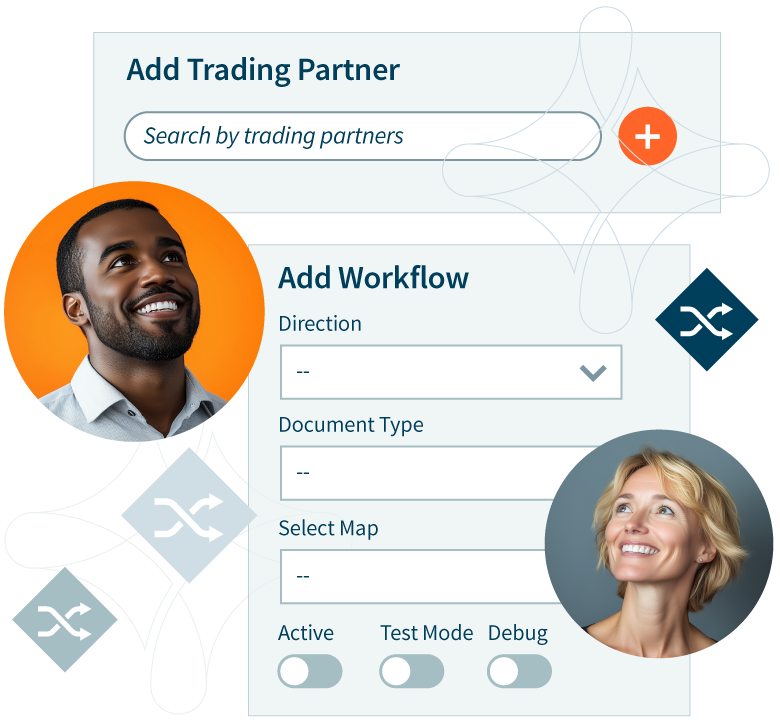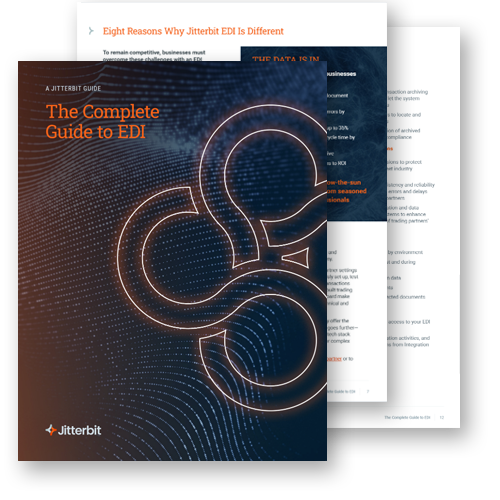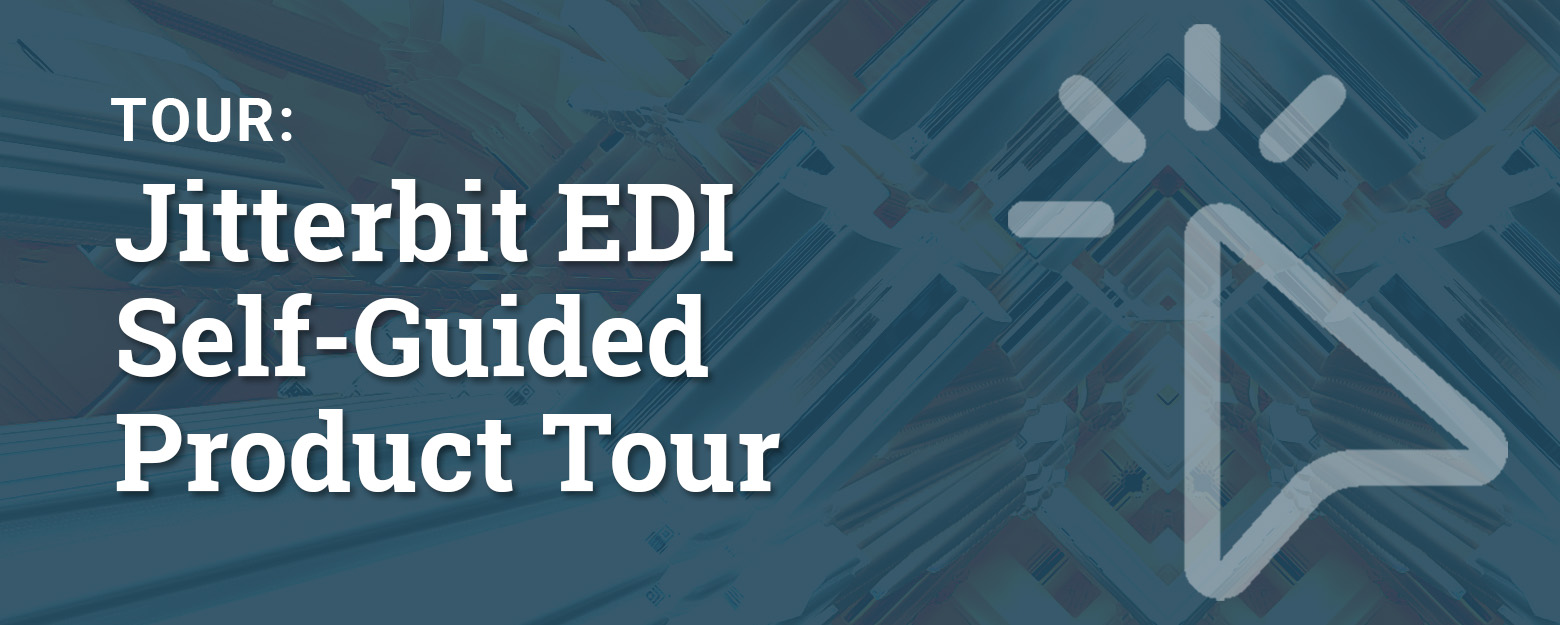Jitterbit EDI
EDI integration solutions that automate workflows and accelerate new trading partner connections—all on one enterprise platform.
Seamlessly integrate with more than 1,000 trading partners
Set up, test, manage and monitor trading partners, EDI documents and workflows in one place.
90%
99.99%
#1
2024
Manage all of your B2B/EDI transactions in a single integration platform.
From one dashboard, easily connect systems, automate workflows, establish new trading partners, and monitor all your transactions with a few clicks. With a robust feature set, accelerate your business with efficient EDI data integration.

Simplify EDI management
- Setup, test, and manage trading partners with a modern UI
- Enable non-technical users to easily monitor and manage EDI transactions through an intuitive dashboard
- Eliminate extra software costs by integrating VAN, AS2, SFTP, and FTP connections directly into your system
See Jitterbit's EDI solution in action.
Schedule a DemoEDI Integration Case Studies
The Complete Guide to EDI
In The Complete Guide to EDI, you’ll learn:
- Why EDI still reigns supreme–even after 40 years
- The most common challenges faced in deploying EDI
- 8 reasons that Jitterbit delivers an industry-leading EDI experience

Hear what others have to say
Jitterbit saved us a lot of money and time because, without them, we would have had to hire specialists or another team of developers to build a customized integration for us.”
Hades Kong, Head of Solutions for Whiskers N Paws
Read Case Study
We’ve saved countless hours that people spent working manually on orders. Showing our partners that we can process orders quickly and efficiently creates faith in our brand and opportunities to grow our business.
David Vopnford, Application Delivery Manager for Topcon
Read Case Study
Excellence that exceeds expectations




EDI Document Types
If you have any specific questions about integrating your EDI with your ERP, CRM, and accounting systems, please reach out. Click below for more information regarding EDI document types and some of the most common documents you will use to engage with trading partners.


































